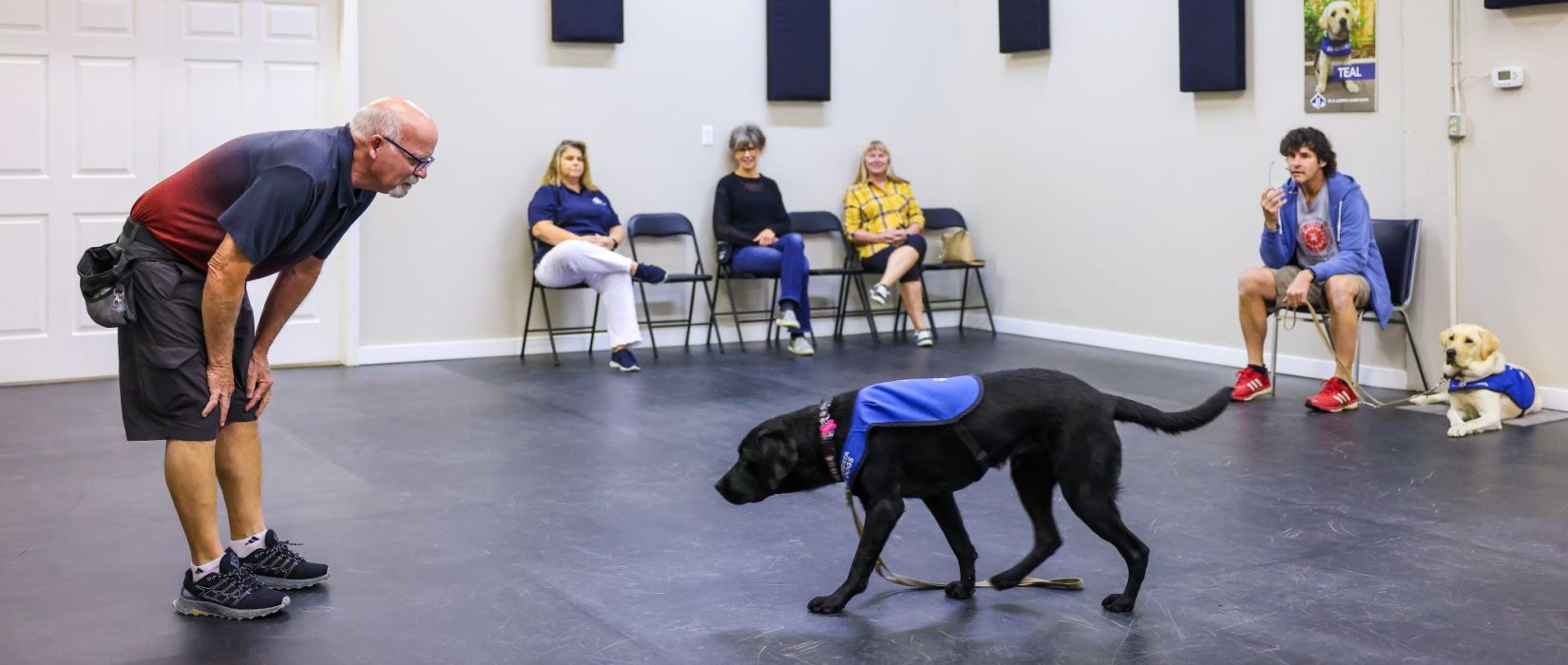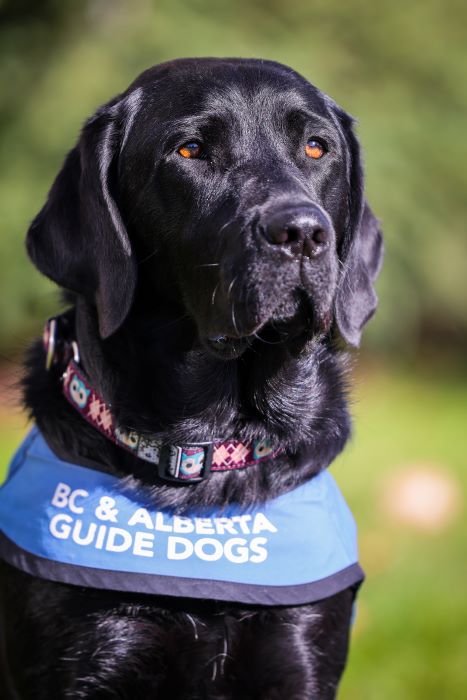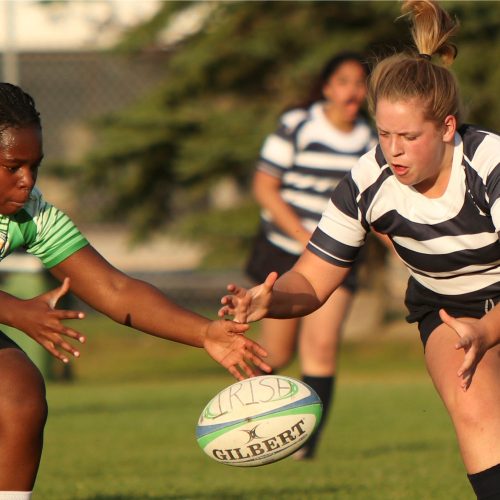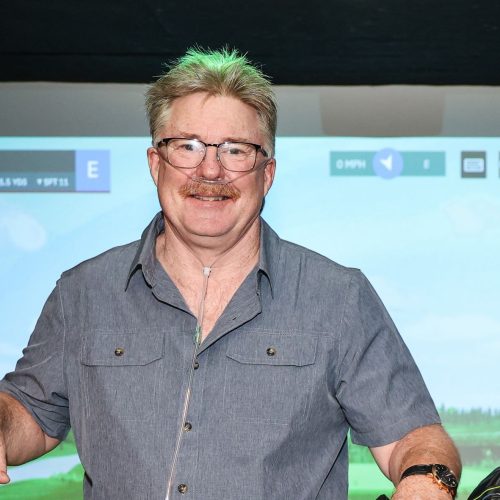If you love dogs, you already know how incredible they are. Aside from providing unconditional love, they can be trained to guide visually impaired people, and provide support for those with autism or veterans and first responders with post-traumatic stress disorder (PTSD).
Airdrie residents Sandy and Lyle Dietrich have spent the last nine years volunteering for BC & Alberta Guide Dogs and have raised four pups for the program. They are currently co-raising their fifth pup with Airdrie resident, Shonna Stokowski.
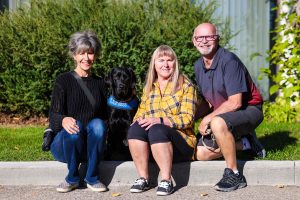
According to Sandy, puppy-raisers have the dogs from eight weeks until approximately 20 months old, when they move on to advanced training. The pups then attend a guide dog school or autism-support program in Vancouver or a PTSD program in Edmonton or on Vancouver Island.
“You get pretty attached to them,” says Sandy. “It’s a little difficult giving them up, but you know they’re going on to make a difference in someone’s life, so it makes it a little easier.”
The dogs, which are mostly Labrador retrievers, are whistle-trained to ensure they stay sitting while their owner gets their food ready, so they don’t get in the way of a visually impaired person’s feet. Once the food is set down, the owner blows the whistle so the dog knows it’s time to eat.
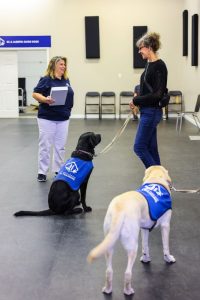
The dogs are trained to respond the needs of the client.
“The first important thing they have to learn is to ring [a] bell to go outside so that, if it was a blind person, [they] would hear the bell and [they] would know the dog needs to go outside,” says Sandy.
Autism-support dogs need to be good with children with autism and confident enough to care for a child in a difficult situation.
For example, Sandy says, “if the child is a ‘bolter,’ they’re trained to sit and not let the child run away.”
Adds Lyle: “They just become an anchor. They might not be able to stop the child from running, but they’re sure going to slow it down enough that the parent’s able to intervene.”
The first dog the retired couple raised became a support dog for two autistic boys. The other pups became support dogs for veterans and one for a firefighter association.
“We’re very proud,” says Sandy. “It’s such a rewarding volunteer job. I’ve never enjoyed a volunteer job as much as I’ve enjoyed this.”
PTSD-support pups are trained with additional skills such as turn a light on if their owner has a nightmare, for example, Sandy says. If the person becomes disoriented in public and drops the leash, the dog will pick up the leash and nuzzle their owner’s hand.
“The PTSD program is really growing in demand because there are so many first responders and veterans that have PTSD or an occupational stress injury and they need these pups to calm them and to ground them when they’re having an episode,” says Sandy.
Guide dogs are taught to identify obstacles such as doors, stairs and curbs and they’re taught to ride escalators, elevators and transit, says Lyle. Guide dogs work for eight years before they retire and although the visually impaired person will require a new guide dog, they can choose to keep the one they have as a pet. Autism- and PTSD-support dogs stay with their owner for life.
Puppy-raisers attend a 10-week training program and “puppy class” twice a month in Calgary until the pups move on to advanced training.
Sandra Cramer, puppy-raising supervisor for Calgary, runs the classes and suggests what program each pup should go into. She says they are always looking for puppy-raisers — preferably people who don’t work or are flexible.
“It’s not quite the same as just showing up and volunteering a few hours of your time,” says Cramer. “You actually get to see the dog progress.”
For more information, visit bcandalbertaguidedogs.com.


